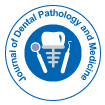Notre groupe organise plus de 3 000 séries de conférences Événements chaque année aux États-Unis, en Europe et en Europe. Asie avec le soutien de 1 000 autres Sociétés scientifiques et publie plus de 700 Open Access Revues qui contiennent plus de 50 000 personnalités éminentes, des scientifiques réputés en tant que membres du comité de rédaction.
Les revues en libre accès gagnent plus de lecteurs et de citations
700 revues et 15 000 000 de lecteurs Chaque revue attire plus de 25 000 lecteurs
Indexé dans
- Google Scholar
- ICMJE
Liens utiles
Revues en libre accès
Partager cette page
Abstrait
Assessing Delay in Care Caused by Oral Antineoplastic Medications
Cinzia Salmina
The advent of oral antineoplastic medications has brought remarkable convenience to cancer treatment, allowing patients to manage their therapy at home. However, this convenience comes with the potential for delayed care, which can significantly impact treatment outcomes. This abstract provides a concise overview of the complexities surrounding the assessment of delay in care caused by oral antineoplastic medications.
Oral antineoplastic drugs represent a paradigm shift in cancer treatment, offering patients the autonomy to self-administer their medication outside the traditional clinical setting. While this approach enhances the quality of life for patients, it introduces a unique set of challenges. Delay in care can manifest through missed doses, inconsistent adherence, and a lack of adequate monitoring, potentially leading to disease progression, increased toxicity, and reduced survival rates.
The date the prescription was written and received by the patient was determined. A retrospective review was completed to gather additional information, including prescribed medication, indication, insurance coverage, patient assistance program use, dispensing pharmacy, and prior authorization requirements. The data was analyzed through multivariate statistical analysis and used to identify risk factors that may significantly increase the time to medication receipt. A total of 58 patients were included in the study. A median of 8 days elapsed between when the medication was prescribed and when it was received by the patient. Medication prescribed, absence of a Risk Evaluation Mitigation Strategies (REMS) program, and insurance type are factors that increased time to medication receipt.
Revues par sujet
- Agriculture et Aquaculture
- Biochimie
- Chimie
- Food & Nutrition
- Génétique et biologie moléculaire
- Géologie et sciences de la Terre
- Immunologie et microbiologie
- Ingénierie
- La science des matériaux
- Le physique
- Science générale
- Sciences cliniques
- Sciences environnementales
- Sciences médicales
- Sciences pharmaceutiques
- Sciences sociales et politiques
- Sciences vétérinaires
- Soins infirmiers et soins de santé
Revues cliniques et médicales
- Allaitement
- Anesthésiologie
- Biologie moléculaire
- Cardiologie
- Chirurgie
- Dentisterie
- Dermatologie
- Diabète et endocrinologie
- Gastro-entérologie
- Immunologie
- La génétique
- Maladies infectieuses
- Médecine
- Microbiologie
- Neurologie
- Oncologie
- Ophtalmologie
- Pédiatrie
- Recherche clinique
- Soins de santé
- Toxicologie

 English
English  Spanish
Spanish  Chinese
Chinese  Russian
Russian  German
German  Japanese
Japanese  Portuguese
Portuguese  Hindi
Hindi